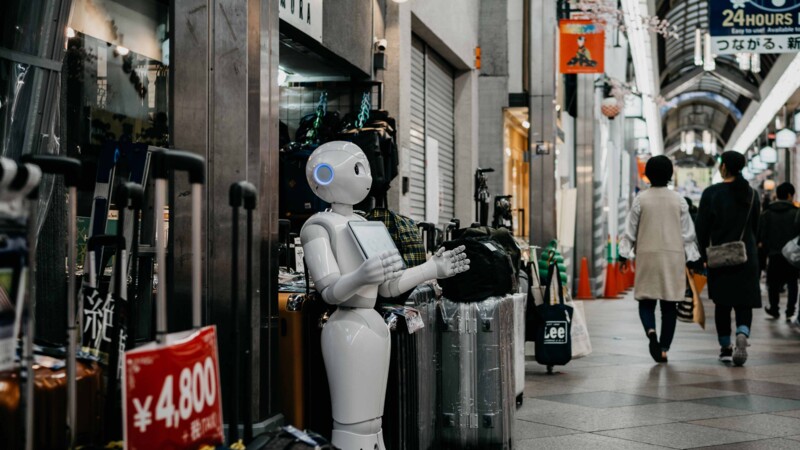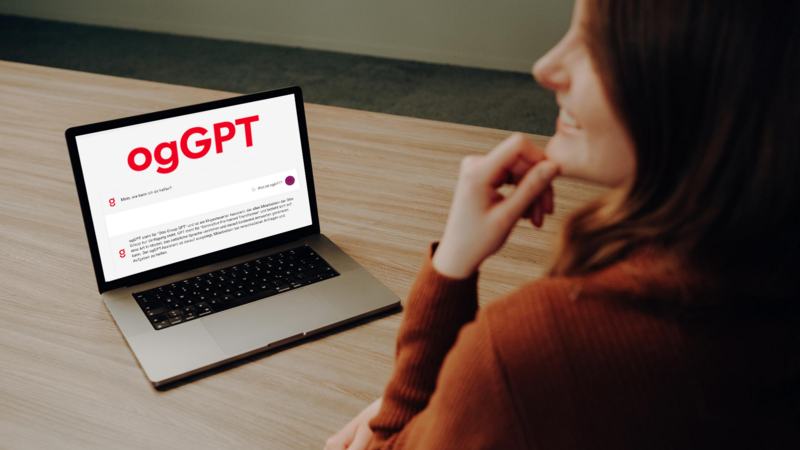"Generative AI is probably the greatest technological invention of our time," said Walter. Since the release of Chat GPT in November 2022, the technology has attracted enormous attention. However, the initial euphoria has since given way to the difficult task of actually using AI profitably. One of the main challenges is integrating the technology into existing systems and measuring its real benefits. Walter refers to the so-called hype cycle of generative AI, in contrast to previous innovations such as the car, which took decades to become established. "The first use cases are working. In one or two years, there will be a breakthrough in complex issues. The speed of the development is tremendous, but that is piling on the pressure."
Generative artificial intelligence (AI) has become a key technology that offers companies such as the Otto Group numerous opportunities to optimise work procedures. The Hamburg-based retailer is now modernising work and paving the way for long-term change. Hamburg News spoke to Sebastian Walter, Vice President Digital and Consulting, and Anja Körber, Head of Automation & AI with responsibility for the internal AI assistant ogGPT, about the challenges and future of this technology.
Hype cycle of generative AI

Otto Group implementing generative AI holistically
Despite the challenges, the Otto Group is well positioned to compete internationally: "Given the large number of successful use cases that are already underway, we are on a par with the market leaders," Walter added. Generative AI is being used across the board - from testing the creation of digitally generated images at Bonprix to the use of robots in logistics. To this end, the Otto Group is working with the U.S. robotics specialists Covariant and Boston Dynamics. The company is also using generative AI in its day-to-day business, based on a four-pillar strategy, said Walter. Emotionalising the topic of AI through internal campaigns ensures that all employees understand and appreciate the technology's potential. Tools such as ogGPT are designed to maximise personal benefits and make day-to-day work more efficient. Practical strategic use cases such as automated email responses or generating marketing content, illustrate the tangible added value of the technology. At the same time, the Otto Group values ethical responsibility i.e. "Responsible AI" to ensure that AI is used responsibly and sustainably. People should not shy away from using AI. "Those who do not engage with the technology now will be overtaken," he predicted.
Interim balance - a year of ogGPT
The Otto Group launched the AI assistant ogGPT just over a year ago to make the technology widely available to all employees. This enables them to answer questions about large volumes of documents, such as corporate guidelines, faster and plan projects more efficiently. More than 7,500 employees use the AI assistant every month, with around 300,000 monthly interactions. "At first, we thought it would be an exciting start," said Körber, "but it has since become clear that ogGPT is the foundation of our AI journey and helps our colleagues to consolidate facts and knowledge of AI." The AI assistant is a "safe space" that allows employees to experience and use hands-on AI, she noted. Custom GPTs are particularly important, which make internal content such as policies usable in interactive scenarios. "This allows us to interact with texts and create special expert models to perform complex tasks more efficiently," Körber pointed out. Tutorials, conferences and workshops for both beginners and advanced users are a key component of the project's success. At the same time, ogGPT has undergone continuous technical development and now include functions such as image generation and analysis of Excel data. More features will be added in future. Körber talks about increasing the number of interfaces to internal knowledge sources, but this hinges on the quality of the data base: "We want users to consciously decide what content they input to achieve high-quality results.

Industry in transition - shopping assistants in future
In the long term, ogGPT has the potential to fundamentally change the way we work, said Körber, adding: "I believe that we will no longer navigate manually through interfaces, but will manage tasks such as time logging or drafting workshop agendas with agents." Such developments are expected across the board. Generative AI will be used for a "personal shopping assistant", predicts Walter. "In five years’, time, such an assistant will be able to recommend products, plan purchases and generally respond to customers' needs faster and in a more personalised manner." However, that requires greater integration of data and systems and further innovations on which the Otto Group is working. The vision is a seamless interaction between humans and AI that makes everyday life easier and revolutionises the customer experience, Walter added.
fw/sb
Read our overview of Hamburg-based companies' successful AI stories.
Sources and further information
More
Similar articles

More and more examples of successful AI transformation in Hamburg

"HHAI-Score" readying Hamburg for GenAI

